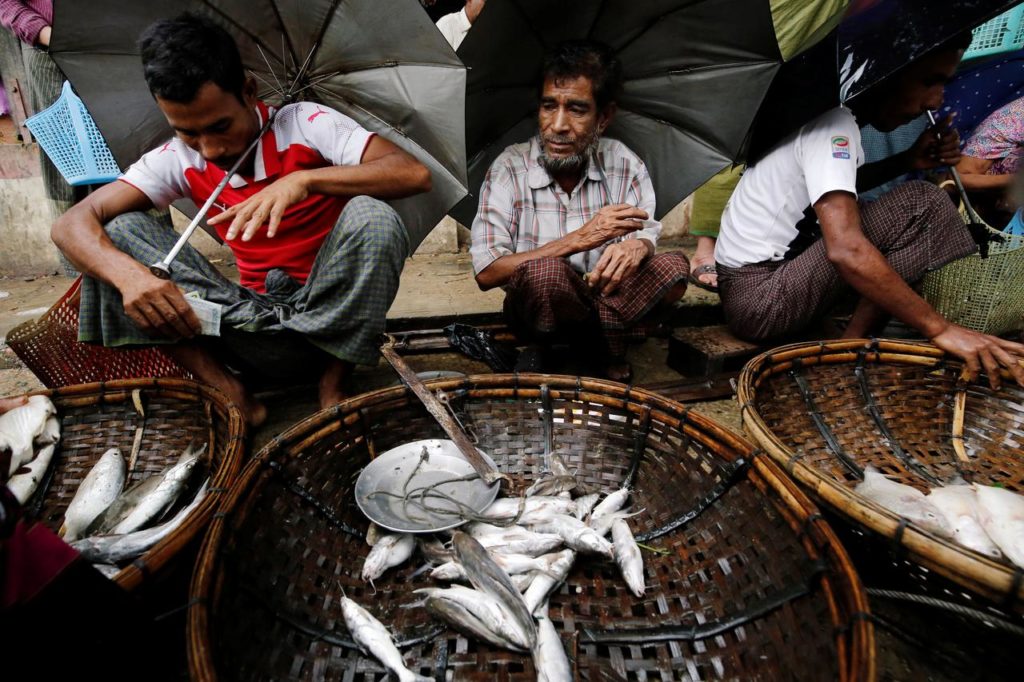Extinction On Our Plates
Dec 10, 2022 | Pratirodh Bureau
Animal products need large amounts of land to grow feed and pasture livestock. This includes not only meat but also dairy, eggs, and even fish, which are increasingly sourced from aquaculture farms that use land-grown feed
Reducing the biodiversity footprint of food consumption requires immediate and widespread action.
The food on our plates has a footprint. Every bite of food we consume represents the environmental impact of all the resources used to produce that food. Land is foremost among those resources.
As food is transported from farm to fork, the land used to grow the food is virtually transported along with it. Depending on what you’re eating, one bite might have a potpourri of virtually embedded land supporting a wide diversity of wild plants and animals.
That wild biodiversity is under threat from the production and consumption of global food systems. Expanding agricultural land is pushing biodiversity past a safe limit. Some species may already be ‘walking dead’, doomed to extinction because they no longer have a habitat large enough to avoid a population crash.
In collaboration with NASA, researchers from universities across the United States are undertaking complex geospatial statistics to closely examine these future biodiversity impacts. Similar efforts around the world are leading some governments to set priorities to protect land within their borders.
But more ambitious conservation efforts are urgently needed.
Latest estimates show 64 per cent of land in North America would need to be conserved to safeguard biodiversity, primarily because of the ecologically intact areas of Canada and the United States. By contrast, at least 33.1 per cent of Europe’s land area requires conservation.
The most threatened land is concentrated in developing countries where mining and farming are economic mainstays. More than half of the most at-risk habitat is in Africa.
To preserve biodiversity we must not only work on protecting natural habitats but also on reducing the food system’s demand for land. If we’re expected, as predicted, to feed 10 billion people by 2050, all that extra food would require clearing at least 1.5 billion acres of forests, savannas and wetlands, an area nearly twice the size of India.
But all is not lost.
There are two key ways governments and individuals can reduce the land demand pressure from the food system: eating a smart plant-based diet and reducing food waste.
First, consider your diet. Animal products need large amounts of land to grow feed and pasture livestock. This includes not only meat but also dairy, eggs, and even fish, which are increasingly sourced from aquaculture farms that use land-grown feed.
A smart plant-based diet is a major way to reduce land demand and biodiversity impact relative to a diet high in meat and dairy.
But not just any plant-based diet will do. Only a smart plant-based diet that avoids sourcing too much food from regions that have high levels of imperiled biodiversity will reduce impact relative to a diet high in meat and dairy. This means reducing consumption of some of our favourite foods like avocados, chocolate, cashews, and other tropical fruits. The international food trade of products like these spreads local biodiversity impacts around the globe.
If that sounds too hard, then here’s the good news. Reducing pre-consumer and consumer food waste by 50 per cent – which might be an easier change than a radical diet overhaul – has almost as much positive impact on reducing land demand in high-biodiversity areas as changing diets does. In the United States, cutting food waste in half has the potential to reduce biodiversity impacts by 18 per cent.
It’s important to keep in mind that both diet changes and food waste reduction are not only individual choices. Governments could implement policies that more aggressively target food waste on the farm, in the supermarket, and in the home.
As a recent UN report showed, developed-world household waste is currently on the rise globally. Incentivising the production of plant-based meat alternatives would also help consumers make biodiversity-friendly choices.
There are challenging decisions to be made. We need to carefully navigate complex issues and unforeseen consequences to reduce biodiversity impacts of the food we eat.
An important piece of the puzzle is helping consumers better understand how their diets and food waste behaviours influence global biodiversity. This means tough trade-offs at the personal and societal level may be needed to better balance human health, economics, and environmental sustainability.
(Originally published under Creative Commons by 360info™)
